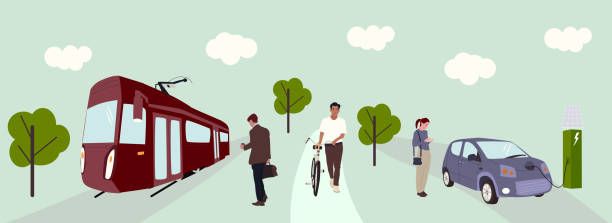🌍 The Environmental Impact of Private Transportation 🚗
Discover how private vehicle use contributes to climate change and how cities worldwide are reducing emissions through sustainable transportation solutions. From EV adoption to carpooling platforms like BlaBlaCar, learn how urban mobility is being reimagined for a greener future.


As the climate crisis worsens, the environmental toll of private vehicles becomes increasingly clear. These vehicles contribute significantly to carbon emissions, degraded air quality, and inefficient fuel use. To combat these issues, a shift towards sustainable transportation is essential. By adopting eco-friendly alternatives, cities worldwide can reduce emissions and promote environmental health.
Here are a few examples of how private transportation impacts the environment, alongside some success stories:
The Environmental Toll of Private Vehicle Use
Personal vehicles, particularly those running on gasoline and diesel, are significant contributors to greenhouse gas emissions, with the average gasoline-powered car emitting about 4.6 metric tons of carbon dioxide each year. This accounts for nearly 60% of transportation-related emissions in the U.S. alone. Cities like Oslo, Norway, have led by example, promoting electric vehicles (EVs) extensively, resulting in over 50% of new car sales being electric and significantly reducing the carbon footprint associated with private transport. On another front, increased usage of private vehicles lead to traffic congestion, which worsens air quality and increases fuel consumption, releasing more nitrogen oxides (NOx) and particulate matter (PM2.5), which are linked to respiratory illnesses. Singapore combats these issues effectively with a robust public transport system and electronic road pricing (ERP), alleviating congestion and enhancing urban air quality.
How Sustainable Transportation Solutions Reduce Emissions and Improve Urban Life
To mitigate the environmental impact of private transportation, many cities have embraced sustainable options like public transit, cycling, carpooling, and electric vehicles. Carpooling is one of the most impactful, cost-effective solutions, significantly reducing the number of vehicles on the road and cutting emissions. A prime example is BlaBlaCar, a popular carpooling platform in Europe that facilitates over 90 million rides annually, reducing CO2 emissions by over 1.6 million tons per year. Copenhagen has revolutionized urban mobility with extensive cycling infrastructure, while London’s Ultra Low Emission Zone (ULEZ) has been effective in curbing high-emission vehicles.
At Matchmiles, we believe scaling these sustainable transportation solutions can collectively reduce emissions, improve air quality, and foster a more sustainable future. The shift to greener transportation is both necessary and achievable, but it requires ongoing efforts from governments, businesses, and individuals.
Stay tuned, to learn more about how MatchMiles contributes to sustainable transportation.
